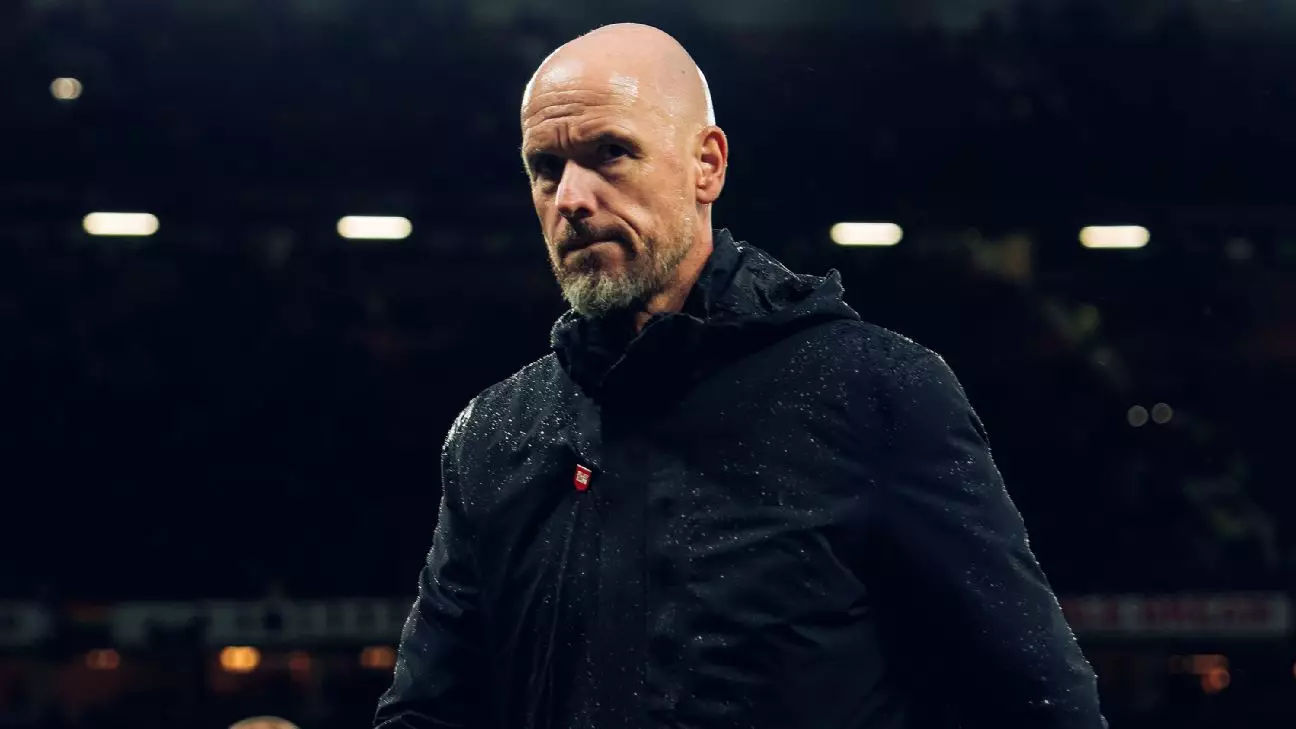As Erik ten Hag continues to lead Manchester United through turbulent waters, the narrative surrounding his tenure is swiftly shifting from hopeful optimism to stark reality. After enduring a disappointing start to the Premier League season, Ten Hag’s management is under intense scrutiny. The team’s recent poor performances, including a humiliating 3-0 defeat at home against Tottenham Hotspur, have left them languishing in 12th place in the league, eight points adrift of the leaders. The stark contrast between Ten Hag’s struggles and the smiley faces of his managerial counterparts, who have achieved immediate success, underscores the urgent need for a turnaround at Old Trafford.
In the aftermath of the Spurs defeat, Ten Hag pointed to the red card shown to Bruno Fernandes as a game-changer, insisting it derailed United’s promising start where they had created some chances. While this claim has elements of truth, it conveniently overlooks the avalanche of opportunities seized by Tottenham prior to the dismissal. Through a statistical lens, the disparity was evident: Spurs dominated possession with over 60%, out-passing United significantly and recording 12 shots against the home team’s meager three. This selective interpretation of events is increasingly akin to a defense mechanism, revealing a potentially troubling trend as the manager tries to shield his faltering record from heightened criticism.
Ten Hag has often pointed to injuries as a significant barrier to consistent performances, a sentiment that many could argue is a common plight among football clubs. However, the level of investment made during his reign—roughly £550 million on transfers—renders these assertions less compelling. High-profile signings such as Antony, Rasmus Højlund, and Mason Mount were expected to transform the squad, yet the results have not aligned with the heavy financial commitment. Only Chelsea has spent more in this period, and as the Premier League landscape shifts, Ten Hag’s financial justification appears increasingly hollow.
Upcoming fixtures present a daunting challenge for Ten Hag. A Europa League match against FC Porto and a Premier League clash with Aston Villa could be defining moments for the current manager. Achieving victories is not merely desirable; it is essential for maintaining his position in the face of mounting pressure. The buzz among United’s hierarchy about potentially replacing Ten Hag is growing. The club’s new football leadership team, including minority owner Jim Ratcliffe, director of sport Dave Brailsford, and the recently appointed CEO Omar Berrada, are reportedly exploring options for a managerial change should results continue to deteriorate.
Ten Hag’s current predicament starkly contrasts the trajectories of other successful managers in the league. For instance, Unai Emery’s turnaround at Aston Villa and Ange Postecoglou’s revitalization of Tottenham demonstrate how managers can extract results quickly and effectively, even in challenging circumstances. Both coaches inherited squads that were underperforming but have transformed them into competitive forces. In contrast, Ten Hag’s United team often displays a lack of cohesion, with players appearing disjointed and lacking in the fundamental chemistry that characterizes successful teams.
What is particularly concerning in this scenario is that the players on the field are largely Ten Hag’s own signings. A significant portion of the starting eleven against Tottenham was recruited during his tenure, and this raises questions about his role in their development and integration. The optimism that accompanied these acquisitions is fading, as potential seems lost in a framework that lacks direction. The sentiment expressed by the manager—that “we are all in one boat together”—not only resonates with a sense of collective responsibility but also draws attention to the underlying issues of leadership and strategic planning.
As Manchester United prepares for pivotal matches, the situation is becoming increasingly precarious for Ten Hag. With a roster he has largely constructed, the absence of a genuine team ethos raises doubts about his ability to foster the unity needed for success. Should results not improve, the club might have no choice but to pivot towards a managerial change. Thus, Ten Hag stands at a juncture where time is running short, and the pressure to deliver is palpable. The history of the club calls for a return to glory—one that will require both results and a harmonious system. In this instance, the fate of Erik ten Hag as Manchester United’s manager hangs perilously in the balance, time ticking away as expectations spiral upwards.

